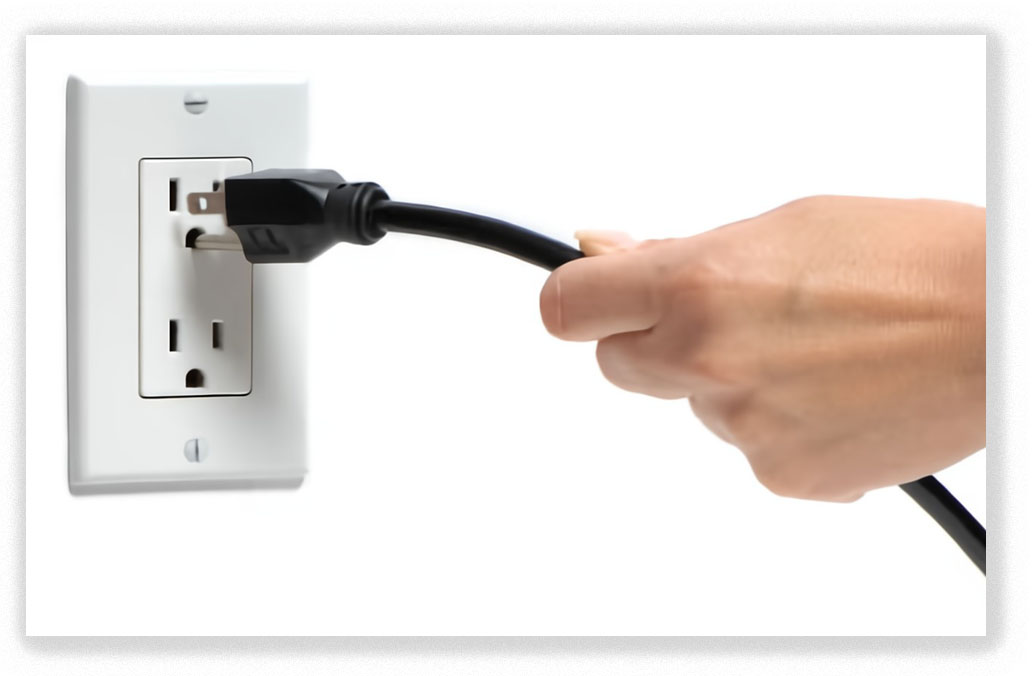We post news and comment on federal criminal justice issues, focused primarily on trial and post-conviction matters, legislative initiatives, and sentencing issues.

CARES ACT HOME PLACEMENT TO END JUNE 10 JUST AS NEW BOP MEMO SURFACES
CARES Act To Expire: President Joe Biden informed Congress yesterday that he will end the twin national emergencies declared by President Donald Trump 35 months ago.
 The end of the national emergency and the separate public health emergency will restructure federal coronavirus response, treating COVID-19 as an endemic threat to public health that can be managed through agencies’ normal authorities.
The end of the national emergency and the separate public health emergency will restructure federal coronavirus response, treating COVID-19 as an endemic threat to public health that can be managed through agencies’ normal authorities.
Biden’s announcement came in a statement opposing a House of Representatives resolution to be voted on later this week (H.J.Res. 7) to bring the national emergency to an end. Congress has the power to end a National Emergencies Act emergency declaration at any time by joint resolution under 50 USC § 1622(a)(1).
A similar resolution sailed through the Senate last November, suggesting that this one could have done the same, embarrassing the Administration. Biden’s announcement just about assures that the Congressional push against the national emergency will fizzle.
Among the myriad of federal responses mandated by the bloated Coronavirus Aid, Relief, and Economic Security (“CARES“) Act, a $2.2 trillion response to COVID-19 that runs some 324 pages in Volume 134 of the United States Statutes, the Bureau of Prisons was given authority to “lengthen the maximum amount of time for which the Director is authorized to place a prisoner in home confinement under the first sentence of section 3624(c)(2) of title 18, United States Code, as the Director determines appropriate.” Practically speaking, this gave the BOP the right to place prisoners on home confinement indefinitely, despite the old 18 USC 3624(c)(2) limitation of 10% of the sentence up to a maximum of six months.
 The BOP has placed 52,815 inmates, almost of third of its normal population, on home confinement since CARES passed. The agency has always pumped up the number by including people who would have been sent to home confinement at the conclusion of their sentence regardless of the CARES Act. Nevertheless, there are over 5,600 CARES Act home confines right now.
The BOP has placed 52,815 inmates, almost of third of its normal population, on home confinement since CARES passed. The agency has always pumped up the number by including people who would have been sent to home confinement at the conclusion of their sentence regardless of the CARES Act. Nevertheless, there are over 5,600 CARES Act home confines right now.
The CARES Act authority continues during what § 12003(a)(2) calls the “covered emergency period.” This period ends “on the date that is 30 days after the date on which the national emergency declaration terminates.” In other words, with the national emergency ending on May 11, the “covered emergency period” ends on Saturday, June 10th.
So will the BOP continue CARES Act placement until then? It makes economic sense for an agency struggling with an employee shortage, especially where inmates with low-security risk and high maintenance costs (read “costly medical care”), to unload as many prisoners as it can. The BOP’s inmate load has increased since hitting a low in 2020, even before having to absorb some 14,000 federal prisoners from private prisons after Biden ended contracting with private prison operators in his first days as president.
 What will become of the 5,600 on home confinement now? The Administration has taken the position that those on CARES Act home confinement will not necessarily be ordered to return to prison. The BOP, in its typical ham-handed way, issued a memorandum in December 2021 saying it intended to develop a plan to evaluate “which offenders should be returned to secure custody.” It clarified that to say it would propose rules governing the factors to be evaluated in calling people back to prison, but the proposed rules have not yet been announced.
What will become of the 5,600 on home confinement now? The Administration has taken the position that those on CARES Act home confinement will not necessarily be ordered to return to prison. The BOP, in its typical ham-handed way, issued a memorandum in December 2021 saying it intended to develop a plan to evaluate “which offenders should be returned to secure custody.” It clarified that to say it would propose rules governing the factors to be evaluated in calling people back to prison, but the proposed rules have not yet been announced.
The Dept of Justice did not help matters. Last June, DOJ issued a Notice of Proposed Rulemaking, seeking public comment on a rule that delegated authority to the BOP to decide who would return and who would not. Those rules have not yet been finalized, but you can bet that they will be soon.
New Memo Is Released: Meanwhile, yesterday, in response to a Freedom of Information Act request, I received the memo issued last month that gave assistant US attorneys (AUSAs) a say in some CARES Act home confinement decisions. The memo, issued December 21 (not December 19, as a BOP administrative remedy response erroneously stated), “supersedes the Home Confinement memorandum dated April 13, 2021.” I have posted a copy of the memo.
One reference to AUSA approval relates to inmates referred for CARES Act home confinement who have 5 years or more remaining on their sentences. It provides that the BOP’s Residential Reentry Management Office – which manages inmates in halfway houses and on home confinement – will contact the AUSA’s office “in the respective Court of Jurisdiction to solicit input regarding the request for Home Confinement. The input from the AUSA is to be considered among the factors used by the RRM Office in making a Home Confinement decision.”
 The second is if the warden refers an inmate who does not fit the CARES Act criteria for placement. In that case, the referral is sent to the “Home Confinement Committee (HCC)… for further review.” The HCC will contact the AUSA’s office for input regarding the request, and any “input from the AUSA is to be considered among the factors used by the HCC in making a Home Confinement decision.”
The second is if the warden refers an inmate who does not fit the CARES Act criteria for placement. In that case, the referral is sent to the “Home Confinement Committee (HCC)… for further review.” The HCC will contact the AUSA’s office for input regarding the request, and any “input from the AUSA is to be considered among the factors used by the HCC in making a Home Confinement decision.”
Writing in Forbes last week, Walter Pavlo observed that “prosecutors have a role in court proceedings, such as when prisoners apply for compassionate release. In those instances, and based on our adversarial justice system, prosecutors rarely support compassionate release cases. However, those are court proceedings where prisoners, defendants, have an opportunity to support their position and them considered by a judge who makes a decision.”
His point is clear: the new CARES Act memo lets AUSAs dump on inmates without the prisoner knowing what was said, let alone having a chance to refute it. What is more, the BOP has issued no criterion to its staff on how to weigh what the AUSA says.
“To inject prosecutors into what is clearly a BOP decision is unfair,” a former federal prosecutor told Pavlo. “To inject the continued adversarial nature between inmates and prosecutors into what is clearly within the sole purview of a BOP decision can lead to unfair or skewed results.”
On March 26, 2020, and April 3, 2020, Attorney General William Barr set criteria for the BOP Director’s exercise of the power granted by the CARES Act to place inmates in home confinement. Pavlo points out that “nowhere in those memos does it state the role that federal prosecutors have in this process.”
AUSAs may have trouble squaring their complaints about inmates being sent to CARES Act home confinement with the government’s position in the Connecticut habeas corpus case, Tompkins v. Pullen, two months ago. There, the government argued that home confinement was nothing special and gave a prisoner no due process liberty interest.
At all times – whether on HC, at the RRC, or in secure custody… Petitioner has remained a “prisoner.” Although she was in a “community custody” status while designated to HC and supervised by the RRC, Petitioner remained a federal inmate and subject to redesignation to a secure facility if necessary to accommodate her security and programming needs… The halfway house is simply one of the facilities operated by the BOP. It is a different kind of imprisonment than maximum security, just as a supermax facility is different than a prison camp, but it is still imprisonment. The restrictions, although less than in some other facilities, remain onerous.
So CARES Act home confinement is a big deal that needs to be run past the AUSA, or it’s nothing different than any other designation decision. The BOP and AUSA may choose whichever argument is preferred at the time.
Unfortunately, it’s clear they only have to choose for the next 130 days. Then, while COVID-19 will still be with us, the CARES Act home confinement program is history.
Associated Press, President Biden to end COVID-19 emergencies on May 11 (January 31, 2023)
H.J.Res.7 Relating to a national emergency declared by the President on March 13, 2020 (January 9, 2023)
Bloomberg Law, BGOV Bill Summary: H. J. Res. 7, End Covid-19 National Emergency (January 27, 2023)
Bureau of Prisons, Home Confinement Criteria and Guidance (December 21, 2022)
Forbes, Federal Prosecutors Have Increased Role In CARES Act Home Confinement Transfers (January 24, 2023)
Attorney General, Prioritization of Home Confinement As Appropriate In Response to COVID-19 Pandemic (March 26, 2020)
Attorney General, Increasing Use of Home Confinement At Institutions Most Affected by COVID-19 (April 3, 2020)
Gvt Memo in Support, Motion to Dismiss (ECF 14-1), Tompkins v Pullen, Case 3:22-cv-00339 (DConn, filed April 13, 2022)
– Thomas L. Root

